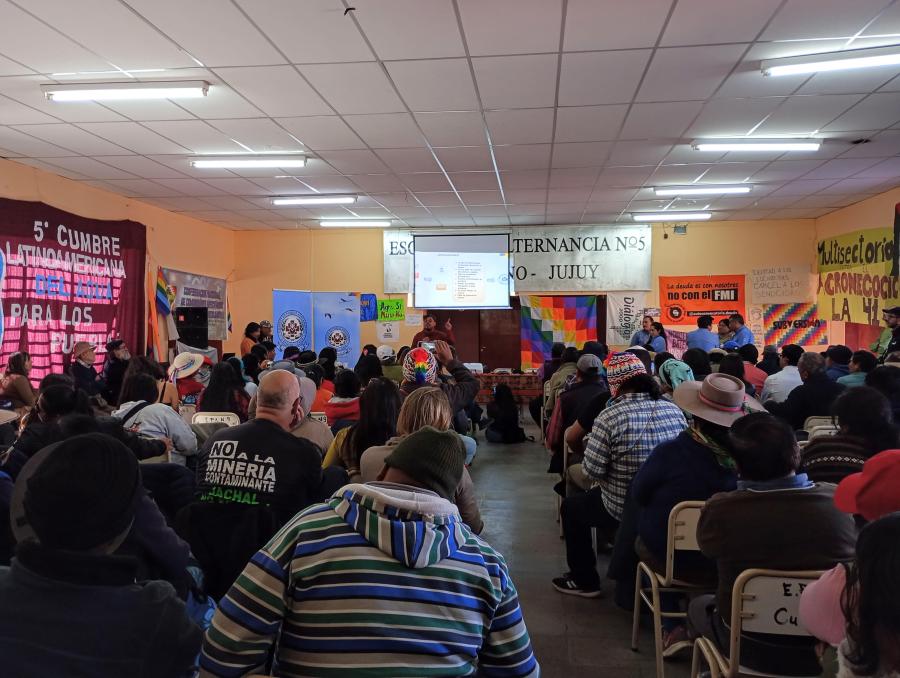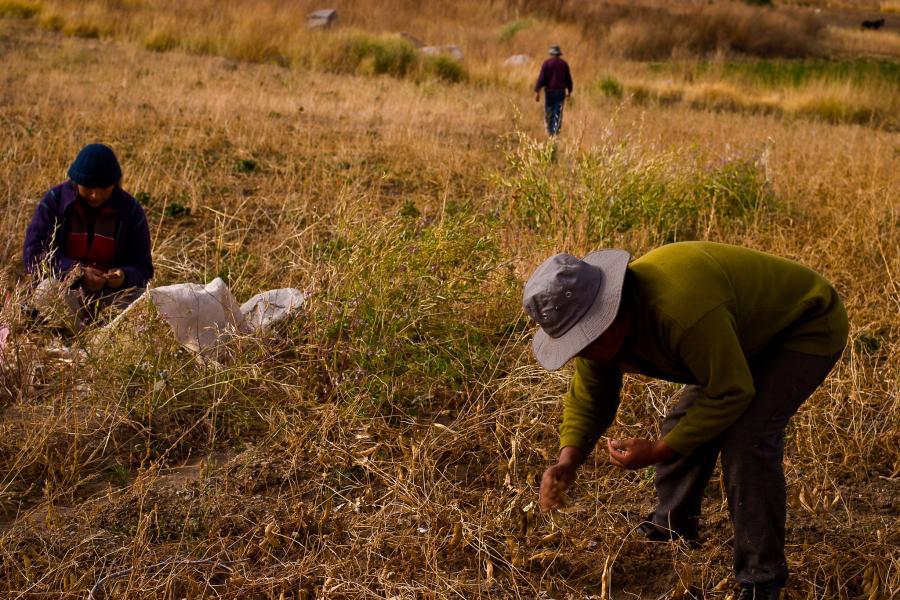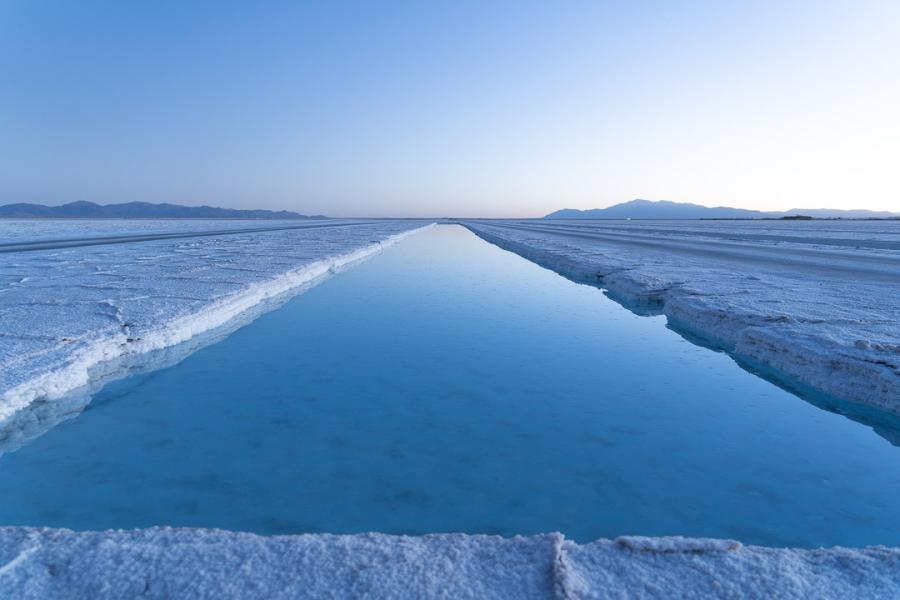Under the national laws and legal systems of the countries in which Indians live, it has been extremely difficult for them to find protection for their human rights. In light of such inadequacies, Indian nations have made efforts to establish an international personality in the courts and political assemblies of the world. Needless to say, their efforts to reassert their sovereignty in their homelands have met with considerable obstacles and opposition. Because individual nation-states have continued to treat Indian nations as insignificant and disappearing ethnic minorities, the international community and international laws have remained insensitive to Indian concepts of nationhood.
The exploitation of these international fora is in a state of infancy. The international human rights system has begun to recognize the particular human rights problems of Indian peoples, and international human rights organizations have had some success in protecting individuals and groups from abusive government actions.
All international human rights work involves international politics as well as international law. No matter what steps are taken to promote Indian rights on the international level, it is essential that Indian leaders and Indian rights advocates meet with human rights officials and governmental representatives to present the Indian position. As more Indian leaders appear before international organizations to present their case for Indian rights and to lobby for better international legal protection for those rights, the likelihood of success will increase.
The Developing International Definition of Human Rights
Today, there is general agreement that all individuals and peoples of the world have certain basic rights which all countries must respect. These rights are called "human rights." The widespread recognition of human rights is a positive development in international law and politics. Only a few years ago, a national government's abuse of its own citizens was generally thought to be an improper concern of other countries or of international law. Human rights abuses were simply thought to be internal problems a country and its citizens should resolve themselves. Today, however, the violation of basic human rights is considered a proper concern of all nations. Increasingly, special international law and organizations are developing to help protect human rights.
The kind of rights that are protected and should be protected is a subject of continuing debate among nations, non-governmental organizations and legal experts. Some take the position that only the most serious abuses - such as torture, slavery, genocide, arbitrary detentions and arbitrary killings - violate human rights that are protected by international law. Others insist that human rights should be defined broadly to include guarantees of the right to individual liberty, general civil and political rights, and a broad range of economic, cultural and social rights. Deciding which of the many asserted rights to include in the definition of human rights is part of the international effort to protect human rights.
Individuals and groups, such as Indians of the Americas, who have relatively little political, economic and military power have usually expressed the view that the definition of human rights should include a broad range of rights. If international protection is too limited, Indians, and others who are most in need of protection from abusive national governments, will have little recourse.
Human rights which many countries have approved and are now listed in international agreements, include:
* The right to life and to personal integrity free from physical or psychological abuse.
* The right to freedom from genocide, torture and slavery.
* The right to freedom of movement, including the right to leave and to return to one's own country.
* The right to own property.
* The right to freedom of speech, religion and assembly.
* The right of peoples to self-determination.
* The right to preserve culture, religion and language.
* The right to adequate food, shelter, health care and education.
Since some of these human rights have more international support than others, it is somewhat easier to get international assistance to prevent violation of them.
Economic, cultural and social rights such as the rights to food, shelter, health care, education, culture, religion and language are firmly established as a matter of international law, but they are more difficult to implement and enforce, and there is less agreement about the protection of these rights. Opponents of a broad definition of human rights argue that these particular rights are not human rights, but social or political concerns that must be resolved solely at the national level.
Until there is more agreement and clarity in the international community about the meaning of these human rights, international human rights organizations are likely to have difficulty in helping to resolve many complaints that Indians may wish to make about violations of these rights. However, human rights work in support of economic, cultural and social rights may still be useful because it will help draw international attention to many serious injustices that might otherwise be ignored.
The Rights of Individuals and the Rights of Groups
Most legal experts in the field of international human rights would agree that international human rights are intended primarily to protect individuals and not groups. In part this is due to the fact that Western legal concepts, which favor individual rights over group rights, have strongly influenced the development of human rights law.
Many Indians do, of course, need protection of their individual rights. However, Indians face human rights problems not just as individuals but as Indian nations, tribes, communities and peoples. It is not yet clear how and to what extent international human rights law will protect what are sometimes called the "group rights" of Indians and other indigenous peoples.
Many Indians believe that the group rights of Indian peoples are the most important and most endangered of all Indian rights. These rights would include the right to self-government and the right to maintain communal ownership of land and resources. As groups, peoples, communities, tribes and nations - not just as individuals - Indians are asserting the right to self-government, the right to determine their own relations with other nations and other peoples, and the right to preserve their cultures, languages and religions.
Some sound legal arguments indicate that some of these important group rights are already part of international human rights law, at least in principle. For example, the international laws that protect individuals' rights to maintain their own language, culture and religion, also protect groups of individuals these same rights. The right of an individual to own property should in principle also include the right of a group whose members decide to own their property in common. The clearly established right to be protected against genocide is another example of a right that applies not just to individuals but to the threatened group as a whole. Although the group rights of Indian peoples have yet to gain the same firm international legal and political support as individual rights, efforts to gain that support have only recently begun.
Human Rights Law and Procedures Give Only Limited Protection
At present no effective international court system or police system for the enforcement of human rights laws exists in the Americas. Those who successfully use the international human rights laws and procedures will not win court orders and international police action against an abusive government. The most they can usually expect is public attention and political pressure against the government. Such publicity and pressure has often helped stop human rights violations, but it does not guarantee that human rights laws and procedures will resolve any particular human rights problem.
While the right of peoples to self-determination is widely accepted as an established human right, international law has yet to guarantee self-determination for Indians because the international community has not decided whether Indian nations, tribes and communities are "peoples" or merely members of minority groups. Under international law, "minorities" are groups with distinct cultures, languages or religions who are legally and politically integrated into larger nations. Minorities have the right to protection against discrimination by the majority of their fellow citizens who have different cultures, languages or religions. But minorities do not have the right to govern all their own affairs or to decide for themselves what will be their political and legal relationships with other peoples and nations.
"Peoples" on the other hand, often have histories of independence, self-government and nationhood, though not necessarily. Their claim to the right of self-determination is based on their separate historical, political and legal existence. The definition of a "people" is not settled in international law, but the International Court of Justice gave this definition in one of its opinions.
A group of persons living in a given country or locality having a race, religion, language and traditions of their own and united by the identity of race, religion, language and tradition in a sentiment of solidarity, with a view to preserving their traditions, maintaining their form of worship, insuring the instruction and upbringing of their children in accordance with the spirit and traditions of their race and rendering mutual assistance to each other.
The International Commission of Jurists, a prominent non-governmental organization, proposed that a "people" be defined as a group having the following characteristics:
* a common history
* racial or ethnic ties
* cultural or linguistic ties
* religious or ideological ties
* a common territory or geographical location
* a common economic base
* a sufficient number of people
Although many Indian nations, tribes and communities would clearly qualify as "peoples" under these definitions, a formal international agreement that defines any Indians as peoples has yet to be established. Almost all of the Indian representatives who addressed international organizations during the past few years have urged the recognition of Indians as peoples and as nations. Only recently have some countries and non-governmental organizations begun to give serious attention to this question of definition.
The debate over legal definitions at the international level, however, is only part of the effort to guarantee this particular right. Actions that Indian peoples take in their home communities and territories can also help determine whether Indian self-determination will be respected in international law. History suggests that those who maintain and assert their self-government, their freedom from outside domination, and their own economic, social and cultural development are most likely to eventually gain international recognition as peoples who have the right to self-determination, regardless of formal rules.
ILO Convention 107: Rights of Indigenous, Tribal and Semi-Tribal Populations
The only international convention that relates specifically to Indian rights is Convention 107 of the International Labour Organization, also known as the Convention Concerning the Protection and Integration of Indigenous and Other Tribal and Semi-Tribal Populations in Independent Countries. Indians interested in international human rights protection must be aware of this convention. Commonly referred to as ILO Convention 107 because some countries regard it as the definitive statement of their legal obligations, ILO Convention 107 is not considered very helpful and in many respects is even harmful to Indians today.
Adopted in 1957, ILO Convention 107 affirms some humanitarian principles that some Indian peoples may use. For example, it requires countries to give equal protection to Indians in their national laws, and it prohibits discrimination against Indians in employment, health care and education. However, many believe that these and other rights listed in ILO Convention 107 are badly comprised because of the convention's emphasis on "integration" or assimilation of Indians. The convention speaks of "indigenous and other tribal and semi-tribal populations which are not yet integrated into the national community." It is meant to facilitate the "progressive integration" of these indigenous populations "into their respective national communities."
Many Indian leaders have criticized ILO Convention 107 as an out-of-date document based on the discredited idea that Indians must be assimilated into non-Indian societies. In recent years, Indians have supported declarations that generally oppose assimilation and emphasize self-determination and land rights. They have demanded an end to the widespread discrimination that they suffer under national legal and political systems and have asked international organizations to support Indian efforts to guarantee Indian rights to self-determination, land and culture. Many Indian leaders are hopeful that the international community will be persuaded to base relations between Indian peoples and national governments on agreement rather than on economic, political or military power. Over the past few years, Indians have begun this important educational and political work in several organizations.
The UN Working Group on Indigenous Populations
The United Nations Working Group on Indigenous Populations is the most important international organization to which Indians may bring general human rights complaints. The Working Group is the first and only United Nations body that is involved exclusively with matters concerning the human rights of Indians and other indigenous people.
Established in 1982 under the UN Commission on Human Rights and its Sub-Commission on Prevention of Discrimination and Protection of Minorities, the Working Group's purpose is 1) to review developments pertaining to promotion and protection of the human rights and fundamental freedoms of indigenous populations and 2) to give special attention to the evolution of standards concerning the rights of indigenous populations. Made up of five human rights experts, each from a different region of the world, it meets for five days each August, immediately preceding the Sub-Commission's meeting at the United Nations headquarters in Geneva, Switzerland.
The Working Group's procedures permit Indian representatives to make oral and written presentations without any special credentials. The exchange of information and views in the Working Group sessions helps form the basis for the Working Group's annual reports and long-term studies. In the larger effort to get the United Nations General Assembly and other international bodies to support Indian rights, the Working Group's recommendations are quite important. Such recommendations may persuade the United Nations General Assembly and national governments to support new international human rights instruments for the protection of Indian rights.
The Working Group sessions are also an opportunity for Indian leaders to exchange views with others who are working to strengthen international human rights law for the benefit of Indians and other indigenous peoples. In addition, the sessions provide an opportunity to educate and exchange ideas with representatives of countries, non-governmental organizations and various human rights groups about the general human rights abuses that Indian peoples suffer.
Last year, in preparation for the fourth session of the United Nations Working Group on Indigenous Populations, an open meeting for all indigenous representatives was held in Geneva the week before the Working Group session. More than 100 participants from over 15 countries including representatives of indigenous nations, indigenous organizations and indigenous NGOs traveled from Brazil, Peru, Bolivia, Ecuador, Argentina, Chile, Mexico, the US, Canada, Sweden, India, Australia and elsewhere. To prepare specifically for the Working Group session the representatives decided to develop a draft declaration of principles to submit to the Working Group to assist it in carrying out its mandate of developing new standards.
The first step in establishing new and stronger international legal standards to protect the rights of indigenous people will be necessary for the Working Group to discuss and propose a Declaration of Principles on the Rights of Indigenous Peoples. In preparing the new draft declaration several older draft declarations were studied and discussed in detail, including the Declaration of Principles adopted at the 1977 NGO Conference on Indigenous Populations in the Americas, the Principles for Guiding the Deliberations of the Working Group submitted in 1982, and the draft Declaration of Principles of the World Council of Indigenous Peoples.
All of the indigenous representatives agreed that a draft of the new declaration would be submitted to the Working Group and then taken back to our respective organizations, nations and communities for further review. The draft declaration, endorsed by six indigenous NGOs and more than 17 other indigenous organizations and groups, was not considered a final document, but rather the best and most comprehensive declaration that we were able to produce at our meeting with the broad participation of many indigenous representatives from throughout the world. It is expected that future discussion of standards will focus on this draft and the changes and additions which are expected.
Article copyright Cultural Survival, Inc.



